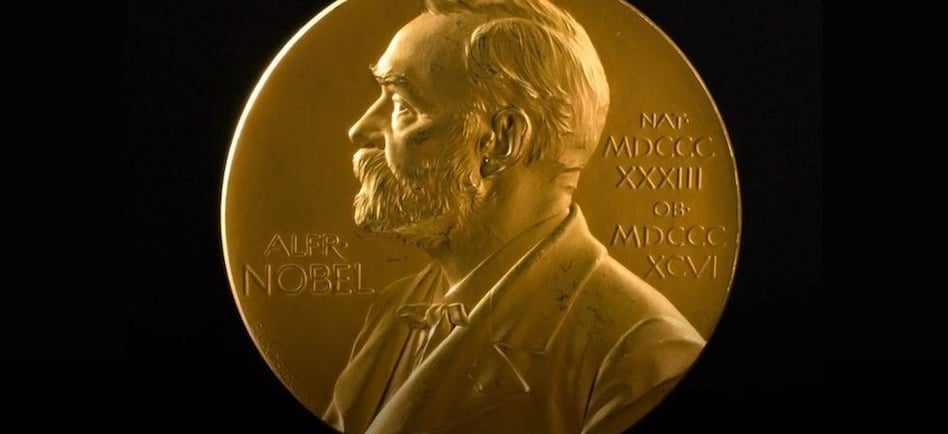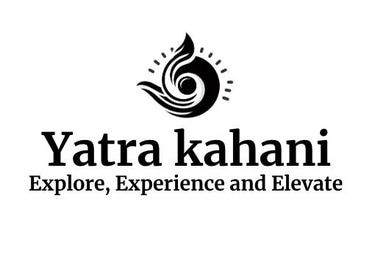Nobel Prize 2025 Announcements Begin Oct 6: How Will the Winners Be Decided?
Nobel Prize 2025 Announcements Begin Oct 6, 2025
10/3/20257 min read


Introduction to the Nobel Prize
The Nobel Prize represents one of the most prestigious honors in the world, awarded to individuals and organizations that have made significant contributions to humanity. Established by the will of the Swedish industrialist Alfred Nobel in 1895, the award aims to recognize and promote advancements in various fields, including physics, chemistry, medicine, literature, and peace. Alfred Nobel's profound desire to encourage scientific research and cultural enrichment led him to allocate his fortune to fund these accolades, thereby fostering innovation and human progress.
Nobel's vision was to create awards that would honor those whose work had a lasting impact on society. Since the first prizes were awarded in 1901, the Nobel Prize has not only celebrated achievements in the scientific community but also emphasized humanitarian efforts crucial for global peace. The Peace Prize, in particular, has garnered immense attention, as it is awarded to individuals and organizations that strive to resolve conflicts, promote reconciliation, and advocate for disarmament.
The Nobel Prizes are awarded annually in several categories: Physics, Chemistry, Medicine, Literature, Peace, and Economic Sciences. Each category has its own independent committee responsible for selecting the recipients based on rigorous evaluations and deliberations. The committees comprising experts in their respective fields rigorously assess nominations, ensuring that the awarded contributions reflect excellence and transformative impact.
Over the years, the Nobel Prize has evolved to include diverse perspectives, recognizing contributions from various cultures and backgrounds. As the Nobel Prize 2025 announcements approach, anticipation builds regarding who will be honored for their groundbreaking work this year. This continued commitment to celebrating human achievement underscores the ongoing relevance of Alfred Nobel’s original mission, reminding us of the importance of recognizing excellence in the pursuit of knowledge and peace.
Announcement Schedule for 2025
The Nobel Prize announcements for 2025 are scheduled to commence on October 6, with a series of declarations extending throughout the following week. The Nobel Committee meticulously plans these announcements, each designated to specific categories, illustrating the diverse fields recognized by this esteemed award.
On October 6, the Nobel Prize in Physiology or Medicine will kick off the sequence, followed by the Nobel Prize in Physics on October 7. The Nobel Prize in Chemistry will follow on October 8. Literature aficionados will anticipate the announcement of the Nobel Prize in Literature on October 9. The Nobel Peace Prize, often regarded as one of the most prestigious and publicized, will be declared on October 10. Finally, the Nobel Prize in Economic Sciences will be revealed on October 13. This schedule not only marks significant days for the respective fields but also instills a sense of anticipation among the global audience.
The importance of these dates extends beyond mere announcements; they symbolize the recognition of extraordinary contributions to humanity. As scholars, scientists, writers, and activists receive accolades, it brings attention to pivotal work in various domains, encouraging discourse and inspiration worldwide. The buildup to these announcements sparks widespread interest, with media coverage and discussions proliferating across social platforms, academic circles, and the general public. With each award, narratives of innovation, resilience, and creativity emerge, inspiring future generations to strive for excellence. The excitement surrounding the Nobel Prize announcements acts as a collective acknowledgment of the transformative power of knowledge and achievement in shaping our world.
The Selection Process Explained
The Nobel Prize selection process is a meticulous and highly respected procedure designed to ensure that the awards are granted to individuals or organizations that have made significant contributions to humanity. The process begins with the nomination phase, which is crucial in identifying potential candidates across various fields. Each category of the Nobel Prize—such as Peace, Literature, Chemistry, Physics, and Medicine—has specific nominating bodies. These bodies comprise renowned experts and scholars who hold the authority to propose candidates for consideration.
Nominations are submitted by a diverse group of individuals, including previous laureates, members of national governments, university professors, and others who have demonstrated authority in their respective fields. However, the nomination process itself is shrouded in confidentiality. Names of nominees and other details about the nominations are kept secret for a set period, typically 50 years, to protect the privacy of both the nominees and those who nominate them. This confidentiality is meant to encourage free and candid discussions regarding potential candidates.
Key Criteria for Selection
The Nobel Prize is one of the most prestigious accolades in the world, awarded to individuals who have made significant contributions in various fields including Literature, Peace, Chemistry, Physics, Medicine, and Economic Sciences. The decision-making process for selecting the winners involves a rigorous examination of key criteria by the Nobel committees, which are composed of experts in their respective fields.
One of the primary criteria is the contribution to humanity. The committees seek candidates whose work has fundamentally improved the human condition or advanced society in notable ways. For instance, Malala Yousafzai, the Nobel Peace Prize laureate of 2014, was honored for her advocacy of girls' education, which directly addressed global education disparities.
Innovation and originality are equally important factors during the selection process. The committees prefer to recognize groundbreaking research or artistic works that challenge the status quo and introduce new ideas. For example, the 1938 Nobel Prize in Chemistry awarded to chemist Richard J. Roberts and his collaborator was motivated by their pioneering discovery of restriction enzymes, which opened new avenues in genetic research.
Impact is another crucial criterion. The Nobel committees examine the tangible effects of a nominee's work on society, science, or the international community. A notable case is that of the 2006 Nobel laureates in Physics, John Mather and George Smoot, whose work on cosmic background radiation has significantly shaped our understanding of the universe.
Ultimately, the selection process is intricate and multifaceted, aiming to honor individuals whose achievements resonate on a global scale. Each chosen laureate reflects the nobility of human endeavor—an aspiration that the Nobel Prize continues to uphold since its inception. These criteria ensure that the winners epitomize the enduring values of excellence and impact.
Controversies and Challenges in Selection
The Nobel Prize selection process has long been a topic of extensive debate and discussion. One of the primary challenges faced by the selection committees is the perception of bias and lack of transparency. Critics argue that the decision-making processes are often shrouded in secrecy, leading to speculation about the criteria used to select winners. For instance, in various instances, candidates who have made significant contributions to their fields have been overlooked, prompting accusations of political motivations or conformity to prevailing ideological trends.
Moreover, the exclusion of deserving candidates not only impacts the individuals involved but also sets a precedent that can overshadow the recognition of contributions in specific fields. This situation has sparked considerable public debate over notable omissions, with the scientific community, in particular, voicing concerns about the implications of overlooking key figures who have made groundbreaking advancements. The question of who is deserving and why remains a contentious topic that reflects broader societal values and priorities.
Geopolitical factors also play a pivotal role in the challenges of award selection. The Nobel Committees must navigate a complex landscape of international relations, where the recognition of certain individuals or countries can be interpreted as an endorsement or condemnation of broader political issues. For instance, awarding a prize to a dissident from a particular nation may be applauded by some while igniting backlash from others, complicating the decision-making process.
Further exacerbating the challenges faced by the Nobel committees is the increasing relevance of contemporary issues such as climate change, social justice, and technological advancements. As the world evolves, these factors influence the selection of winners, requiring committees to balance tradition with emerging global concerns. Ultimately, the challenges in the selection process highlight the intricate interplay between accolades and the socio-political environment, necessitating ongoing scrutiny and discourse.
The Role of Public Opinion
The perception of the Nobel Prize is significantly influenced by public opinion and media coverage. As the announcements approach, excitement grows around potential laureates, which can create a sense of urgency and anticipation among various stakeholders, including the general populace, academic communities, and the media. This collective enthusiasm often leads to discussions surrounding favorites, who is likely to win, and the implications of their work. The increasing prominence of social media platforms has further intensified these conversations, allowing for instantaneous sharing and debate around nominations and winners.
Social media plays a crucial role in shaping narratives around the Nobel Prize. Platforms like Twitter and Facebook serve as arenas for public discourse, where users express their opinions on nominees and speculate on possible winners. This dialogue creates a feedback loop, where public sentiment may influence the visibility of certain candidates. For instance, discussions fueled by viral content or trending hashtags can draw attention to particular individuals or fields of research that might have otherwise been overlooked by the selection committees. Additionally, the influence of opinion polls, blog posts, and online forums contributes to shaping what might be perceived as the "popular choice," emphasizing the significance of public sentiment in the ongoing discussions.
Moreover, there have been instances where public pressure has resulted in heightened scrutiny of the selection process for Nobel laureates. As public interest peaks, there can be increased calls for transparency and accountability in how winners are decided. This added scrutiny can lead to debates about the criteria used for selecting laureates and whether public opinion should play a role in that decision-making process. Ultimately, while the Nobel Prize is awarded based on merit and achievements, the pervasive influence of public opinion and media coverage cannot be overlooked, as they play an essential role in shaping the overall narrative surrounding the prestigious award.
Looking Forward: Predictions for 2025
As the anticipation builds for the Nobel Prize announcements in 2025, there is ample room for speculation regarding potential candidates who may be recognized for their outstanding contributions to the global community. Current global issues, scientific advancements, and cultural developments provide fertile ground for predicting who might emerge victorious. Notably, the increasing emphasis on climate change and sustainability could play a crucial role, suggesting that nominees for the Nobel Peace Prize may come from environmental movements or innovative technologies aiming to combat ecological degradation.
In the realm of scientific innovation, the ongoing advancements in the fields of biotechnology and artificial intelligence are likely to garner significant attention. Researchers who are pioneering breakthroughs in CRISPR technology or those working toward ethical AI applications may find themselves in the spotlight. Notable figures, whose work has the potential to address pressing health crises or ethical dilemmas faced in the digital age, might be strong contenders for the Nobel Prize in Physiology or Medicine, as well as the Nobel Prize in Economic Sciences.
Cultural contributions cannot be overlooked, as literature often reflects societal changes and thoughts. Several authors and poets who are eloquently addressing themes of identity, migration, and social justice may also be among the nominees for the Nobel Prize in Literature. Their work not only offers profound insights but contributes to vital conversations on pressing global issues.
Finally, as geopolitical tensions continue to shape international relations, individuals who promote peace and reconciliation could emerge as favorites for the Peace Prize. Given the importance of bold, visionary leadership in achieving global harmony, the foundation may favor those whose contributions to diplomacy or humanitarian efforts exemplify the spirit of the Nobel ideals. The year 2025 presents an array of possibilities, with numerous individuals and groups deserving of recognition across various Nobel categories.
